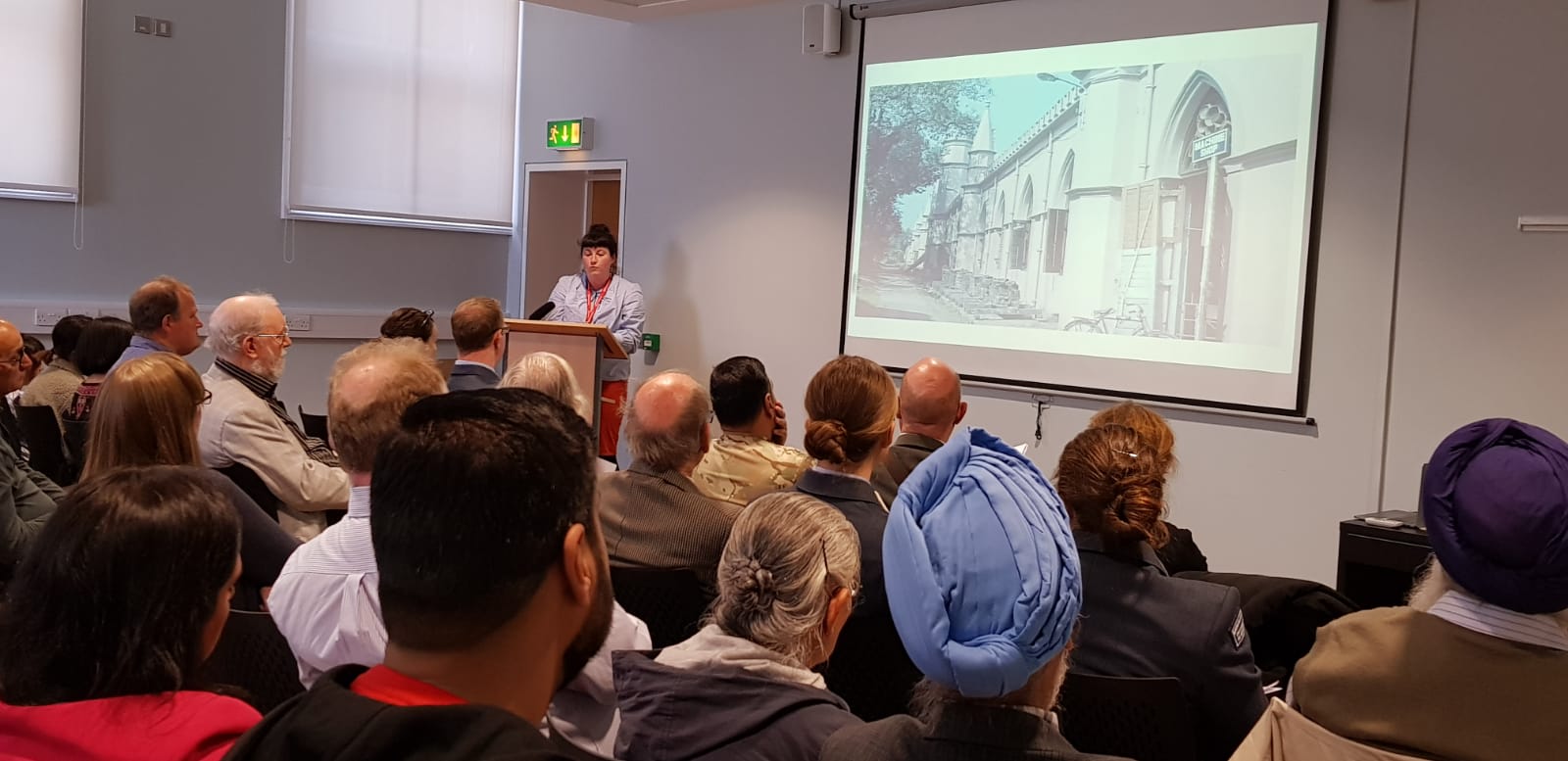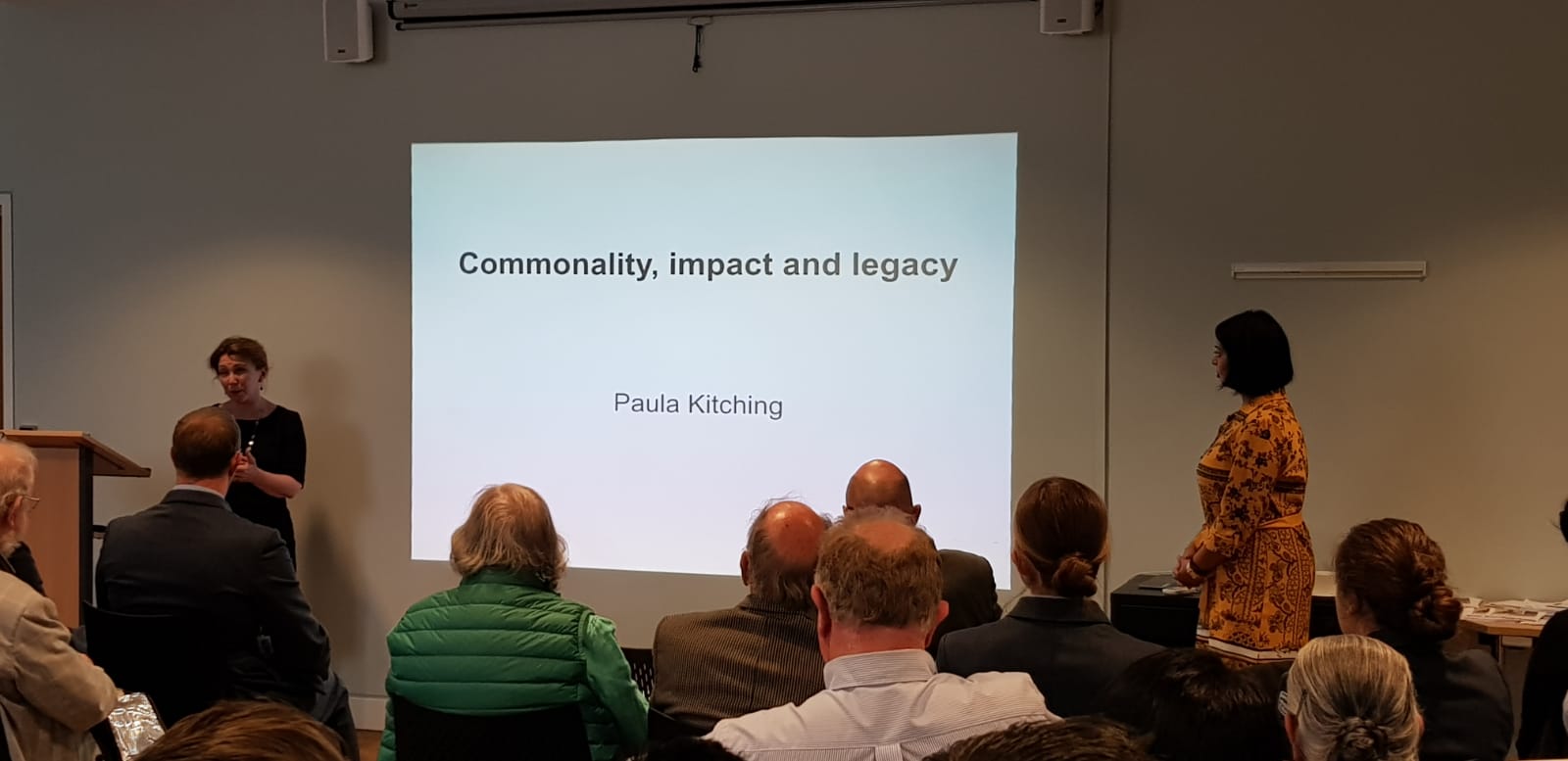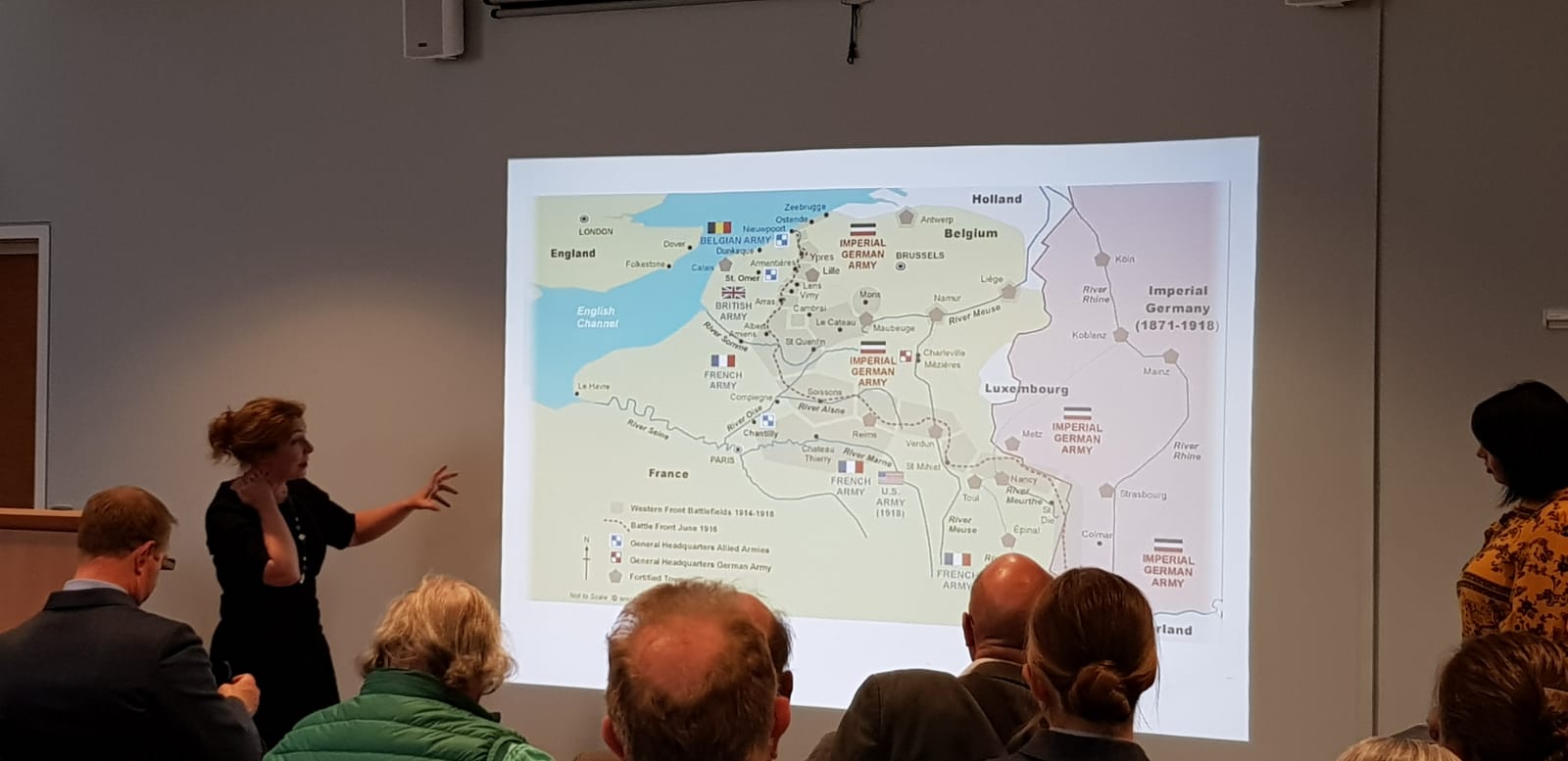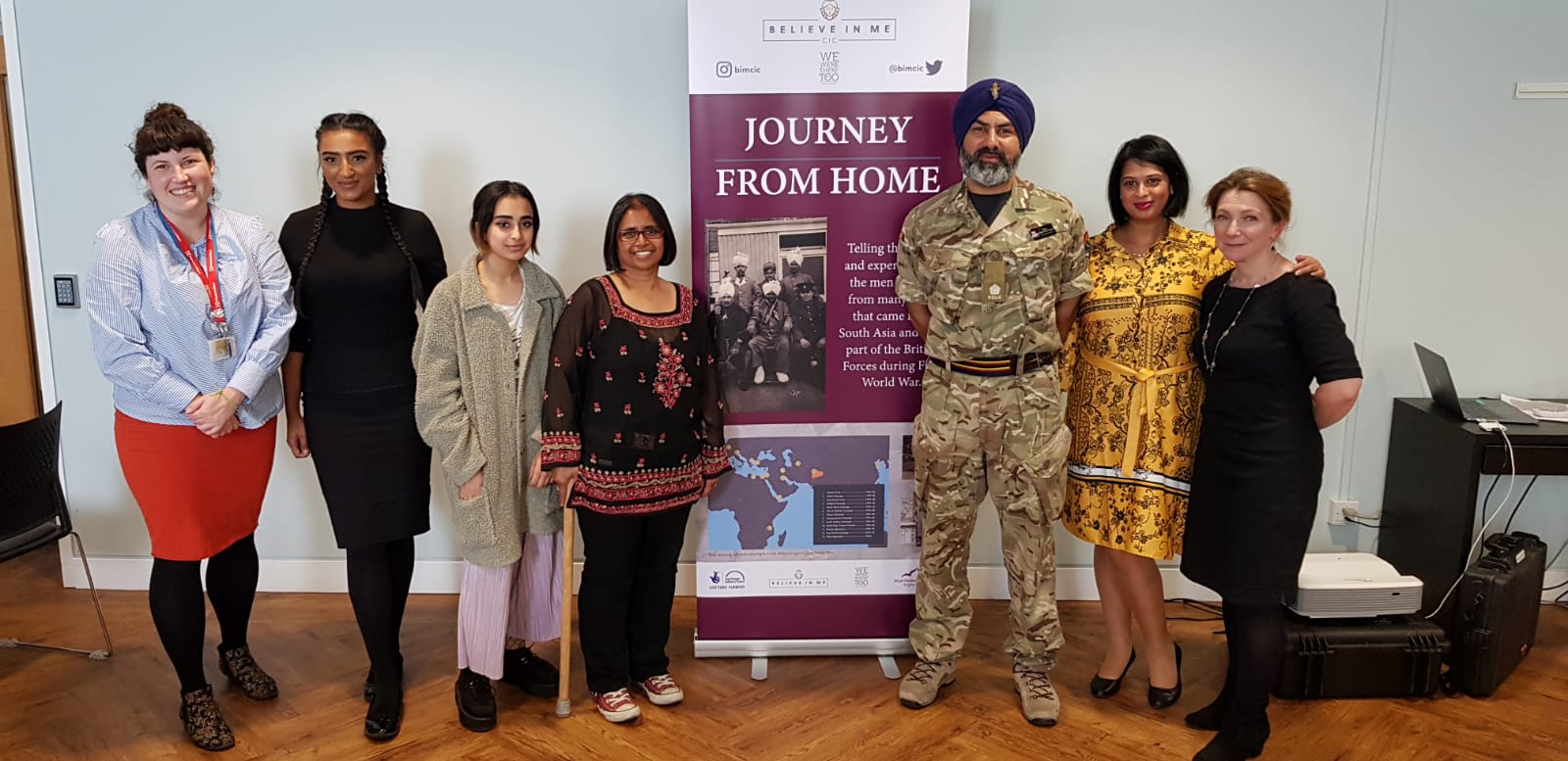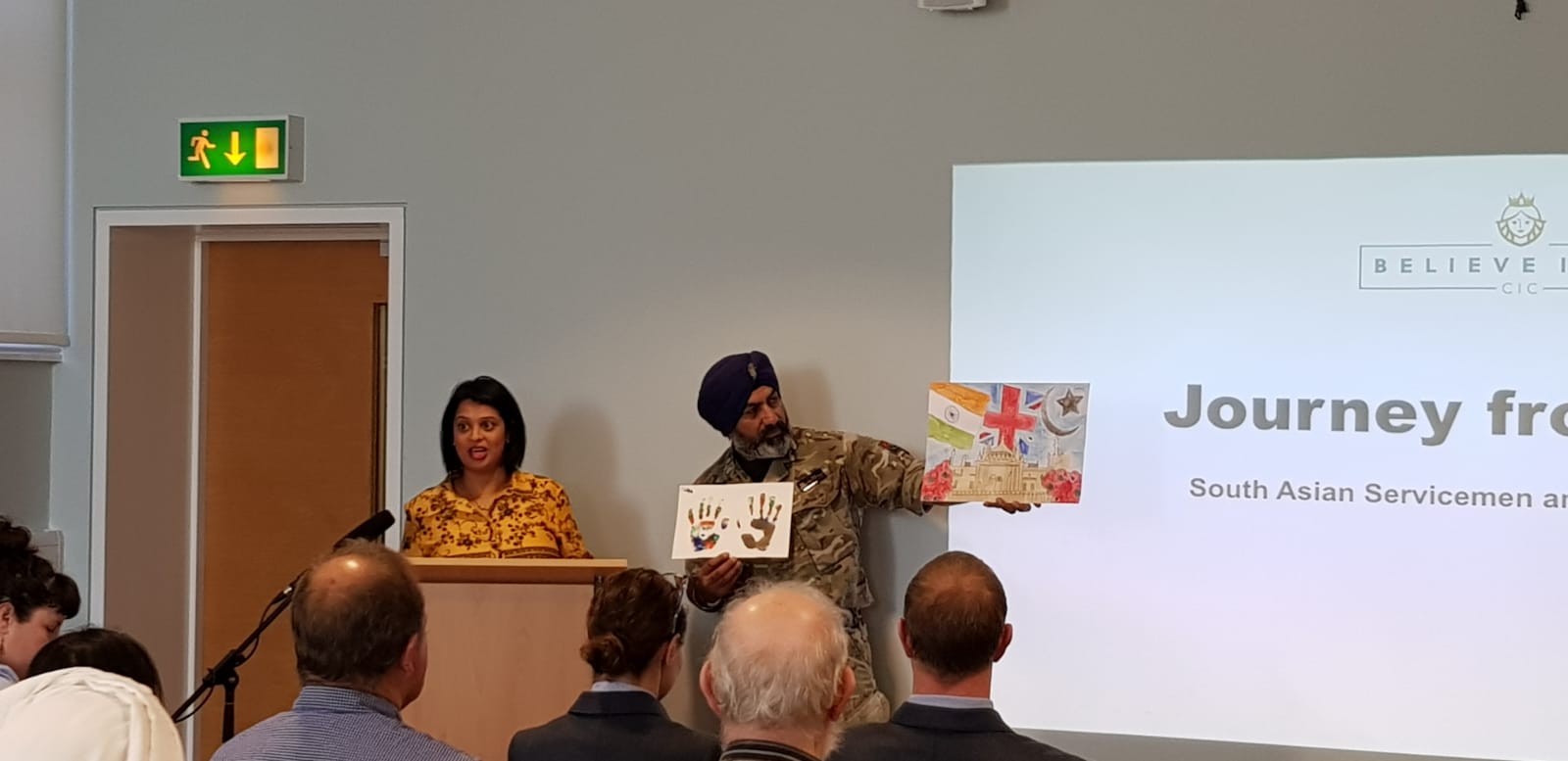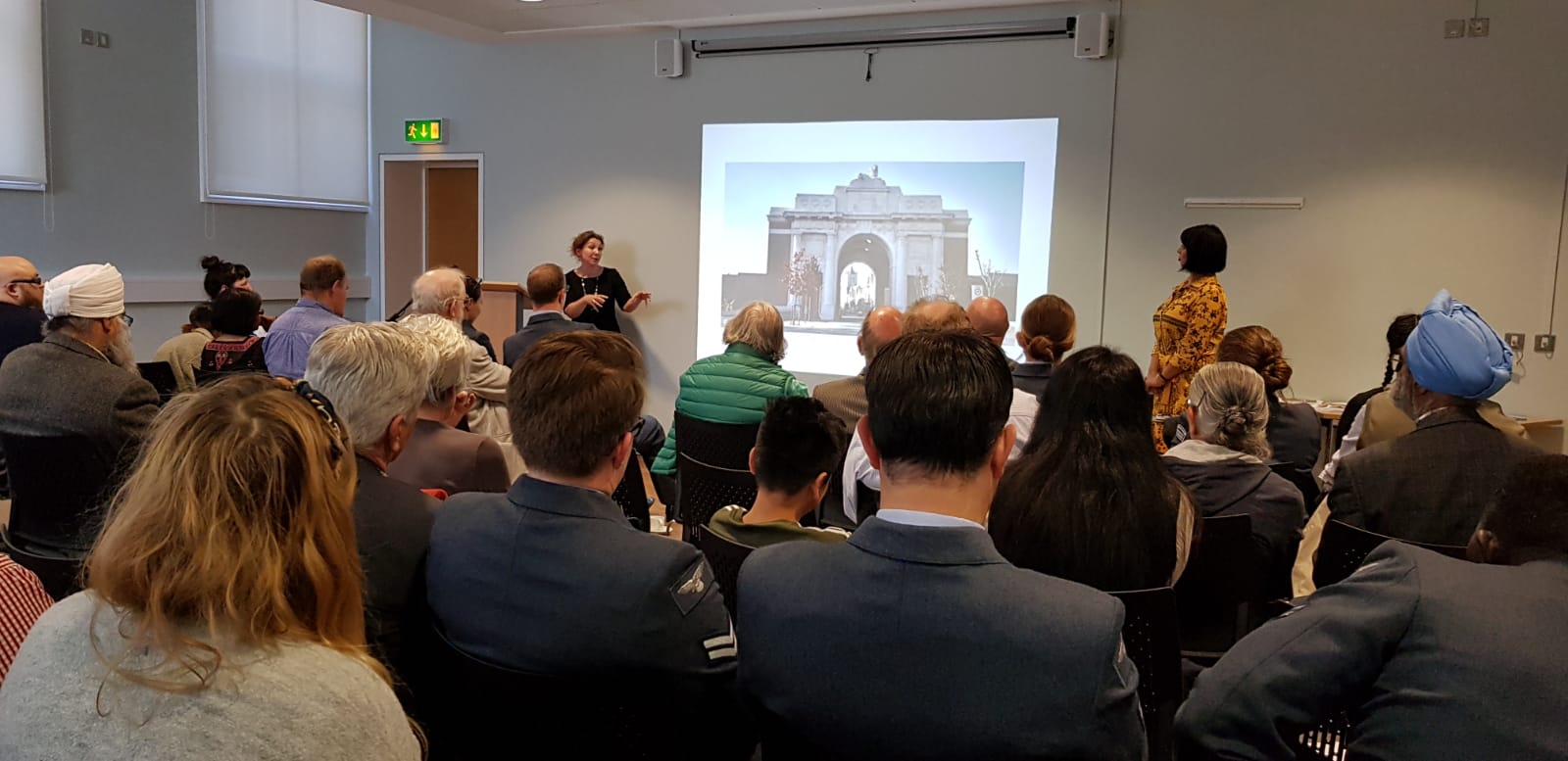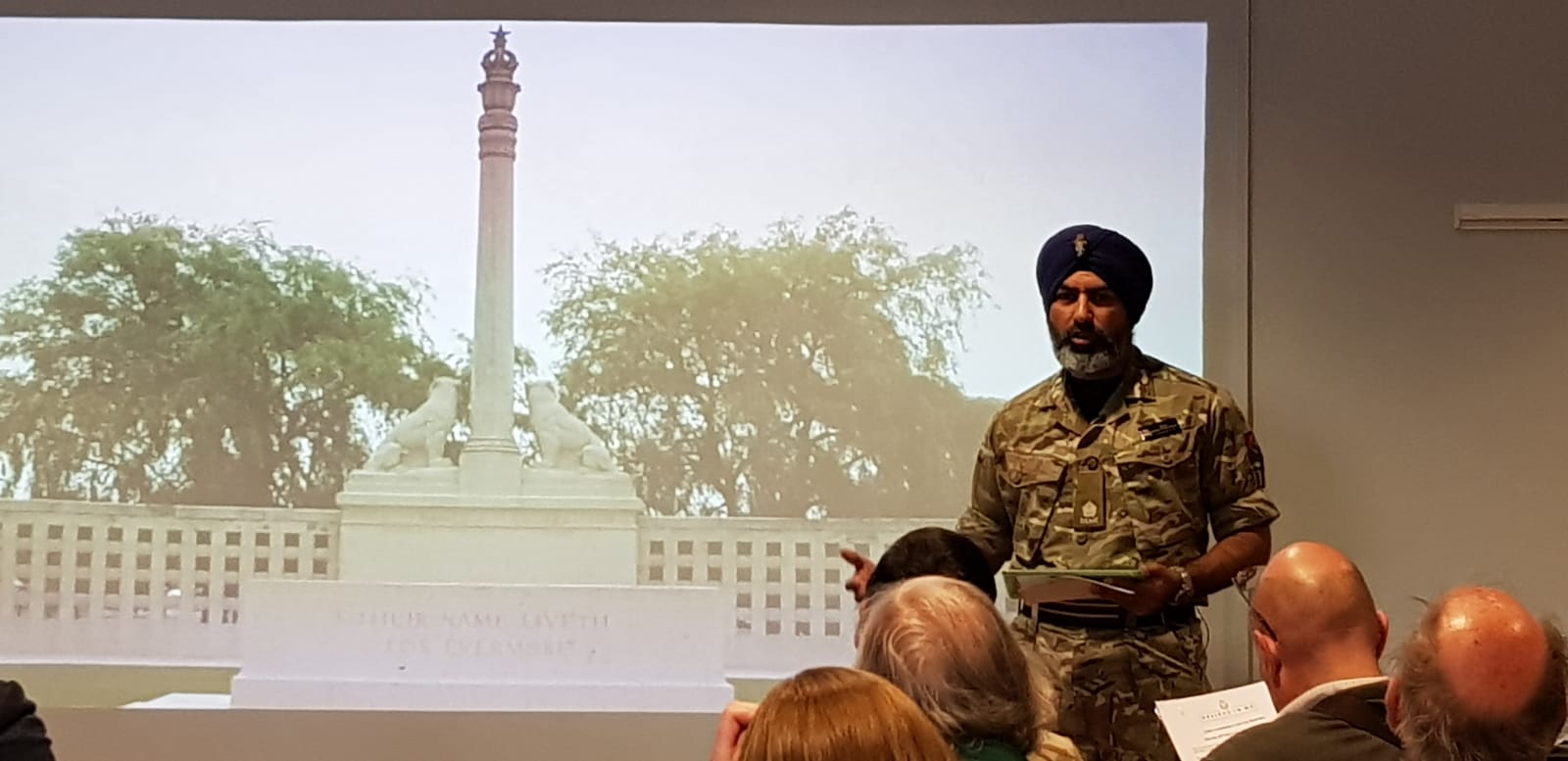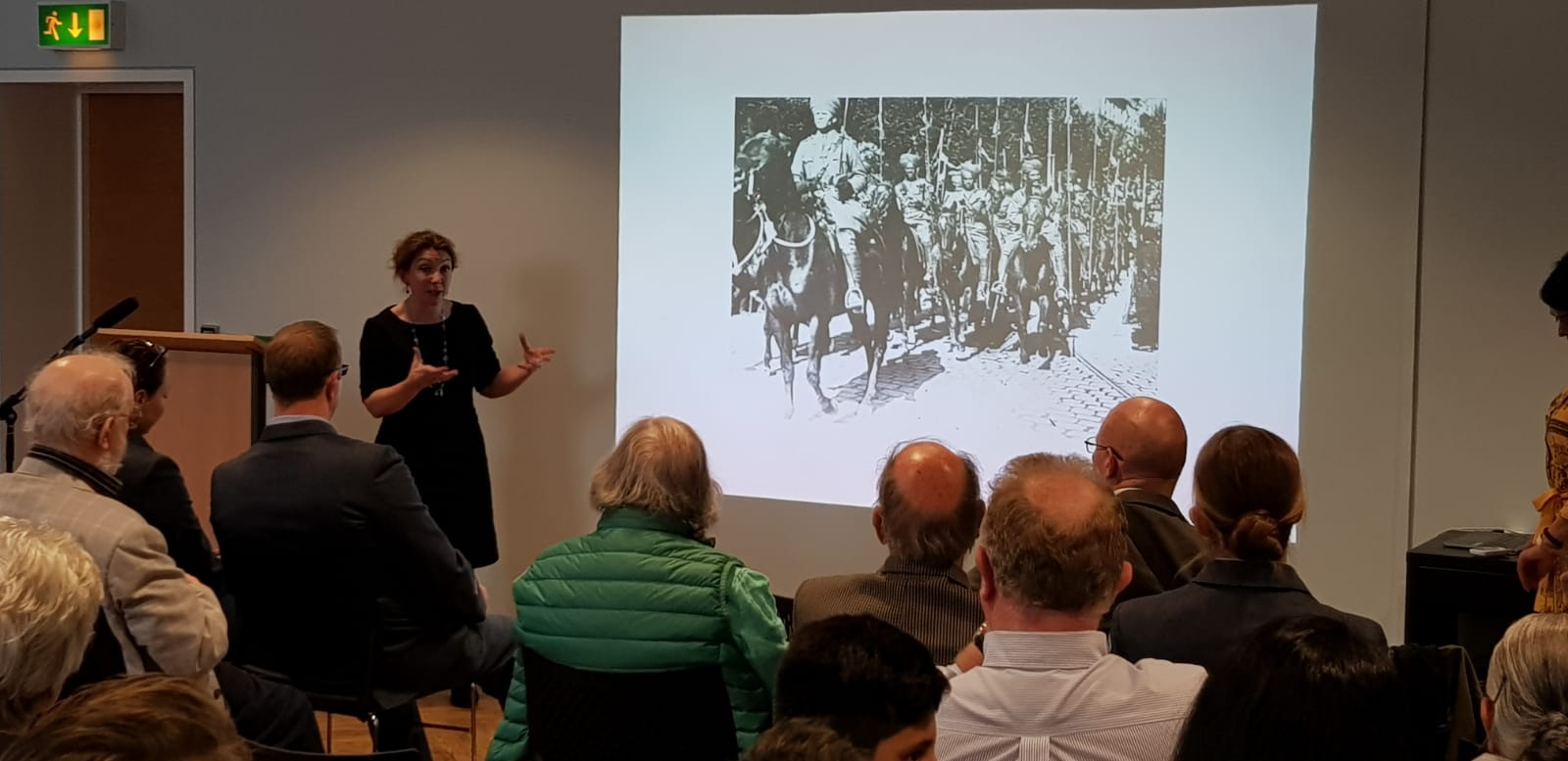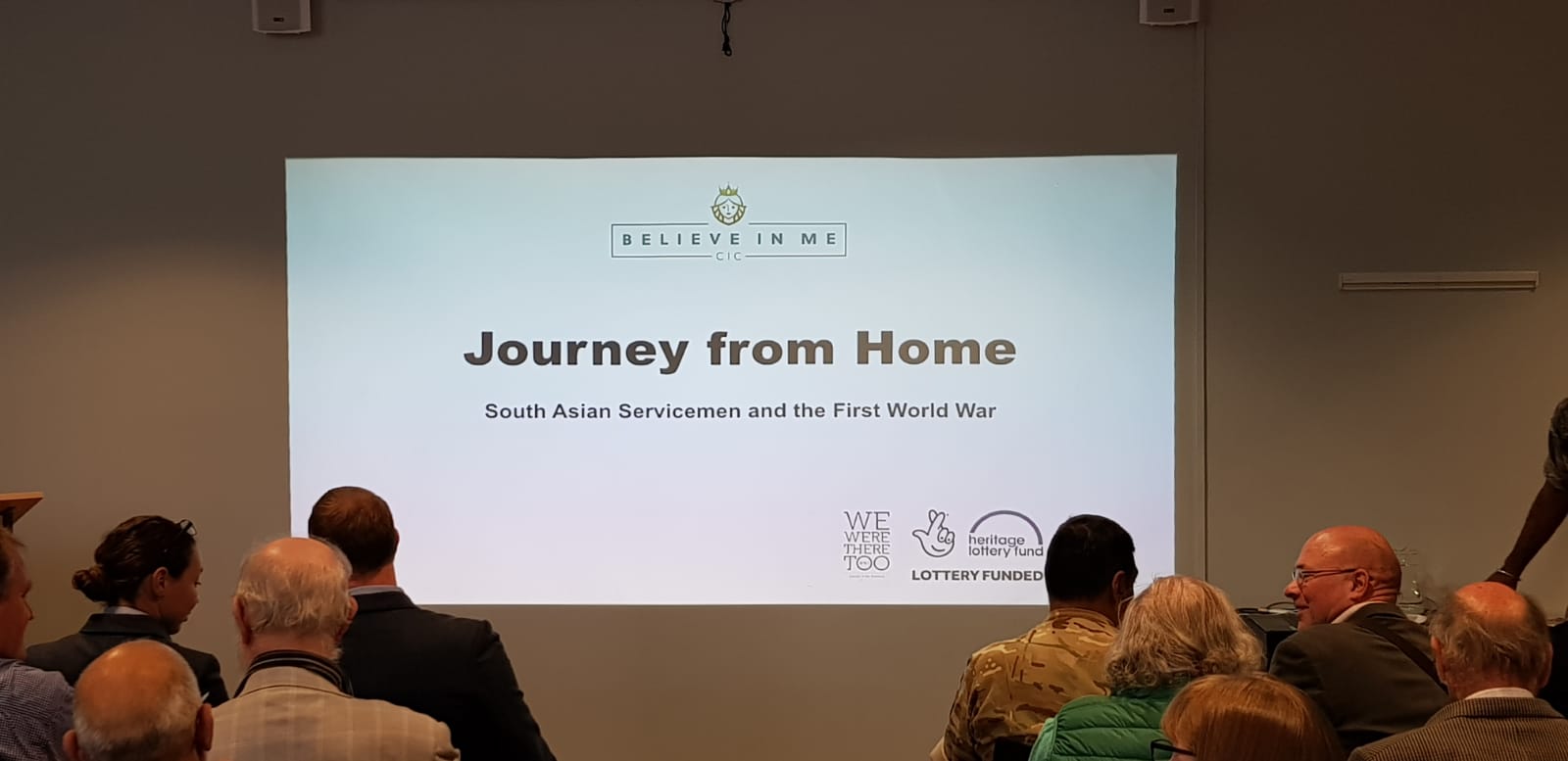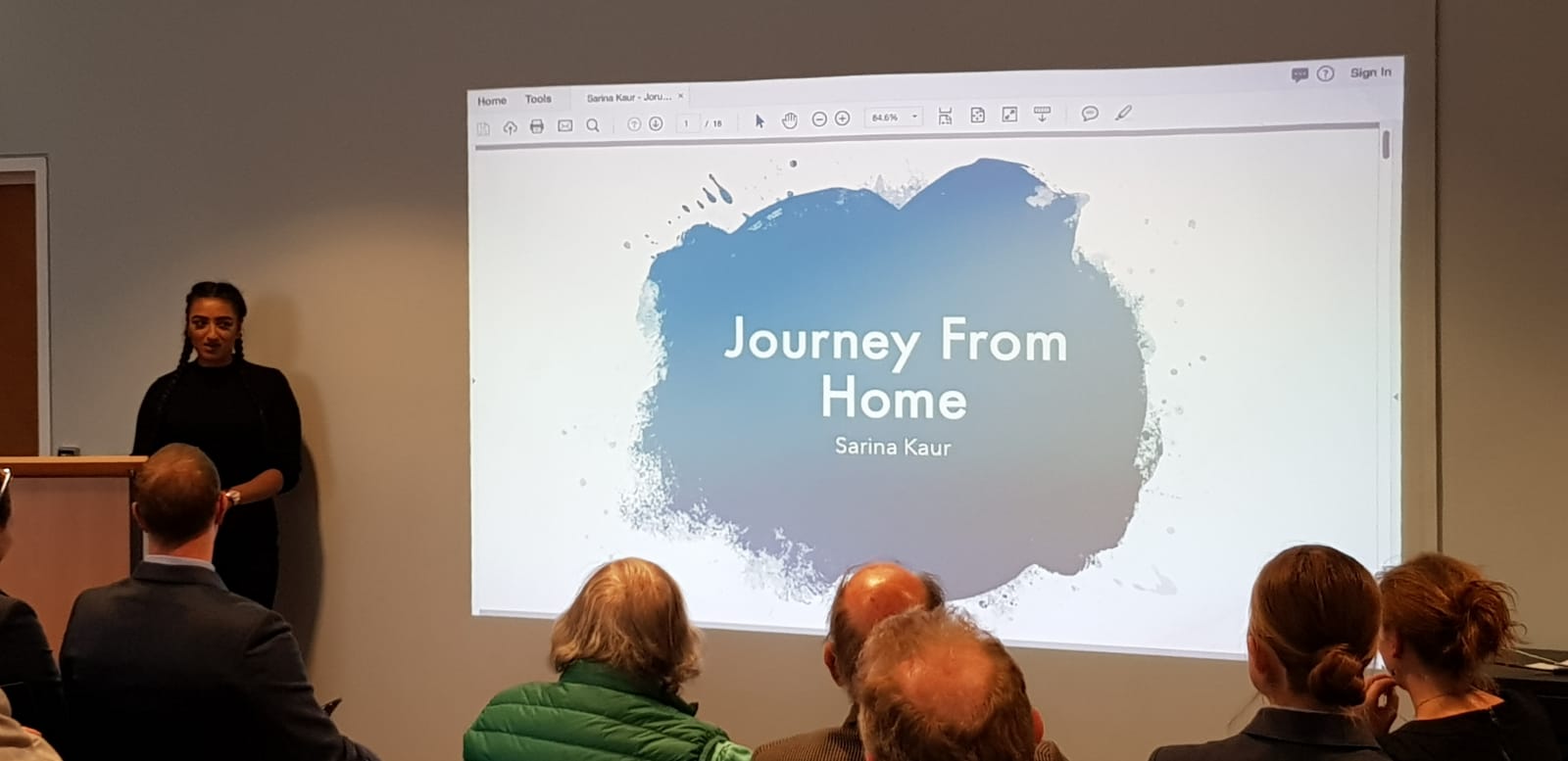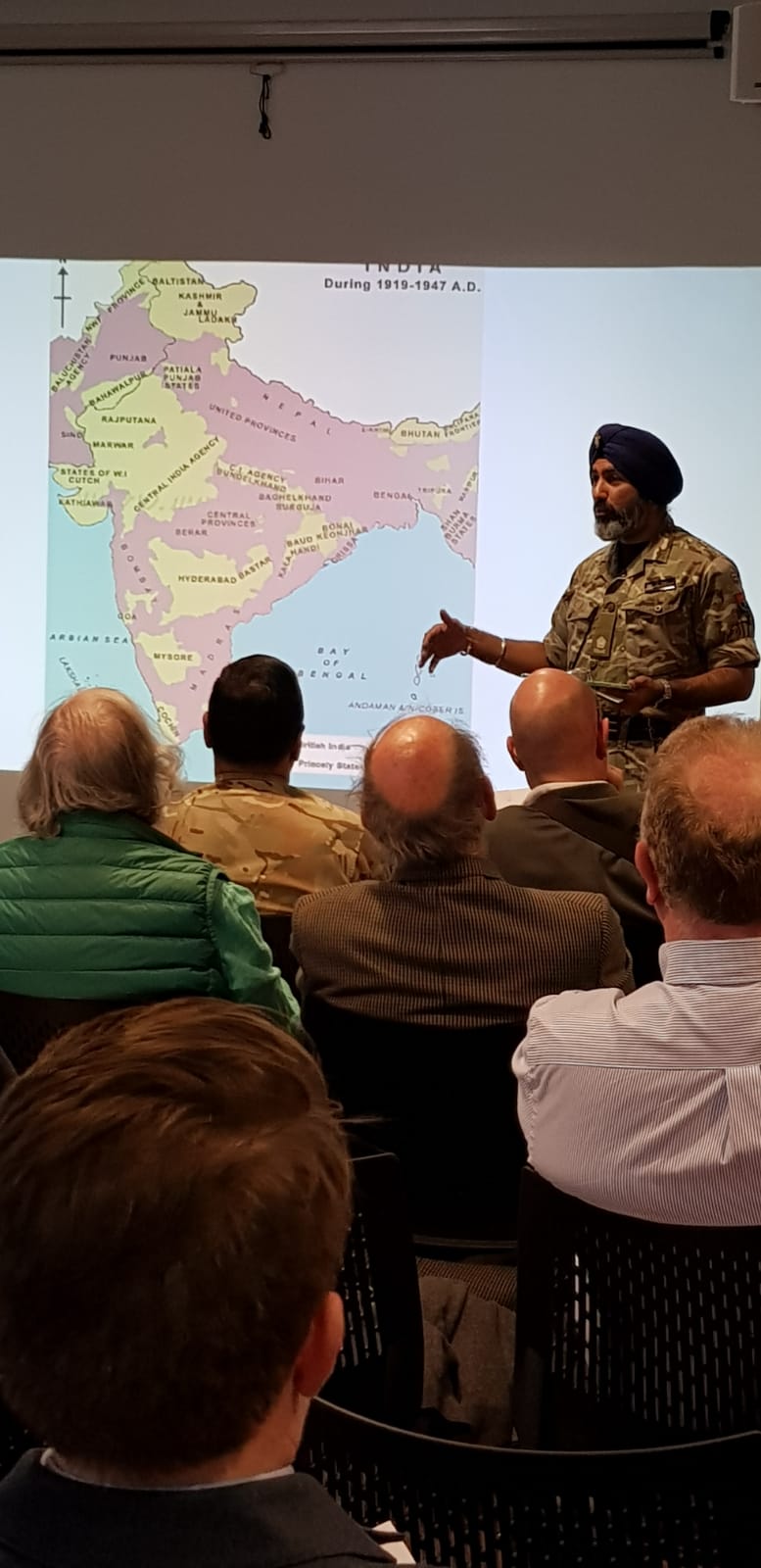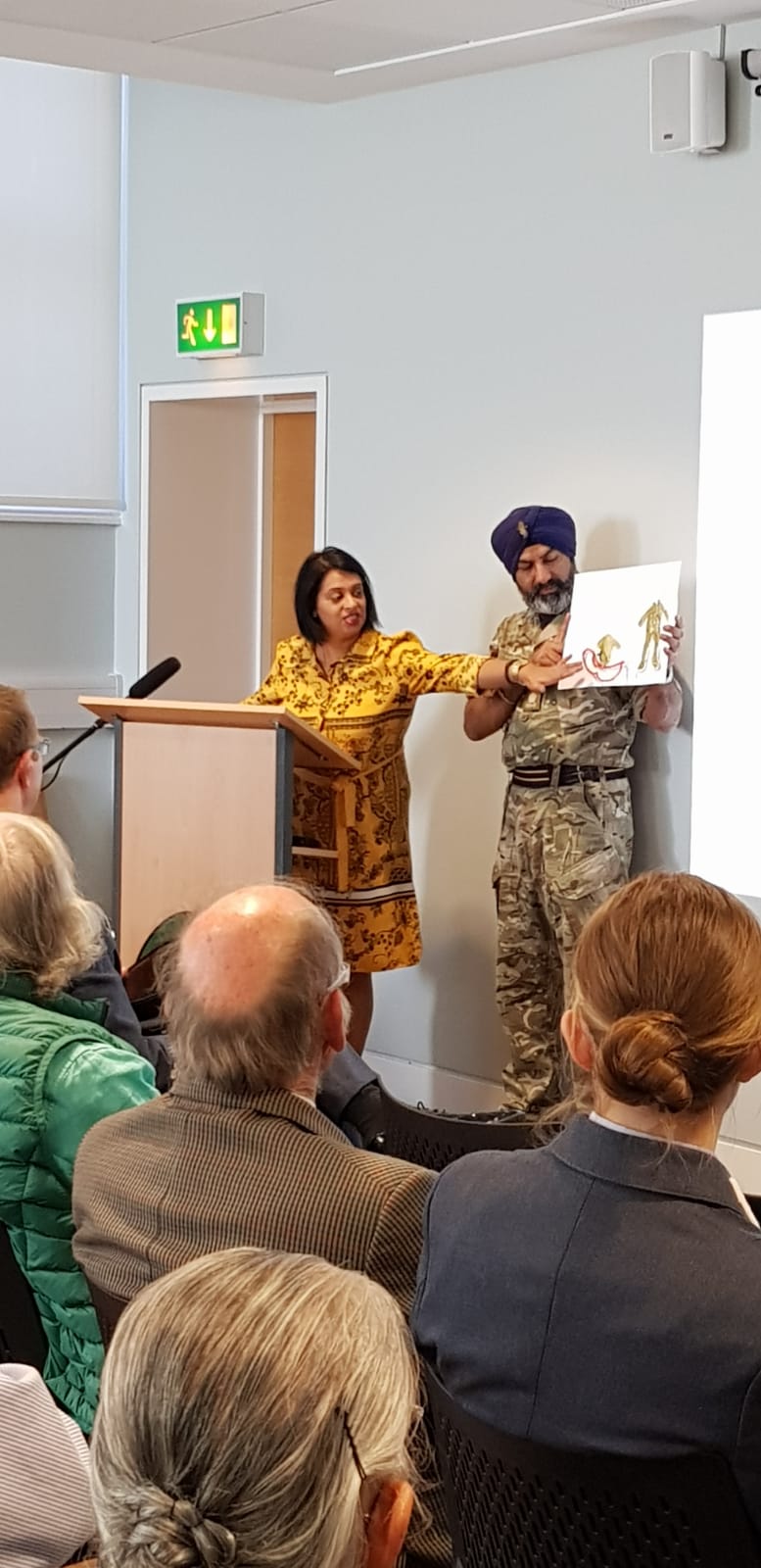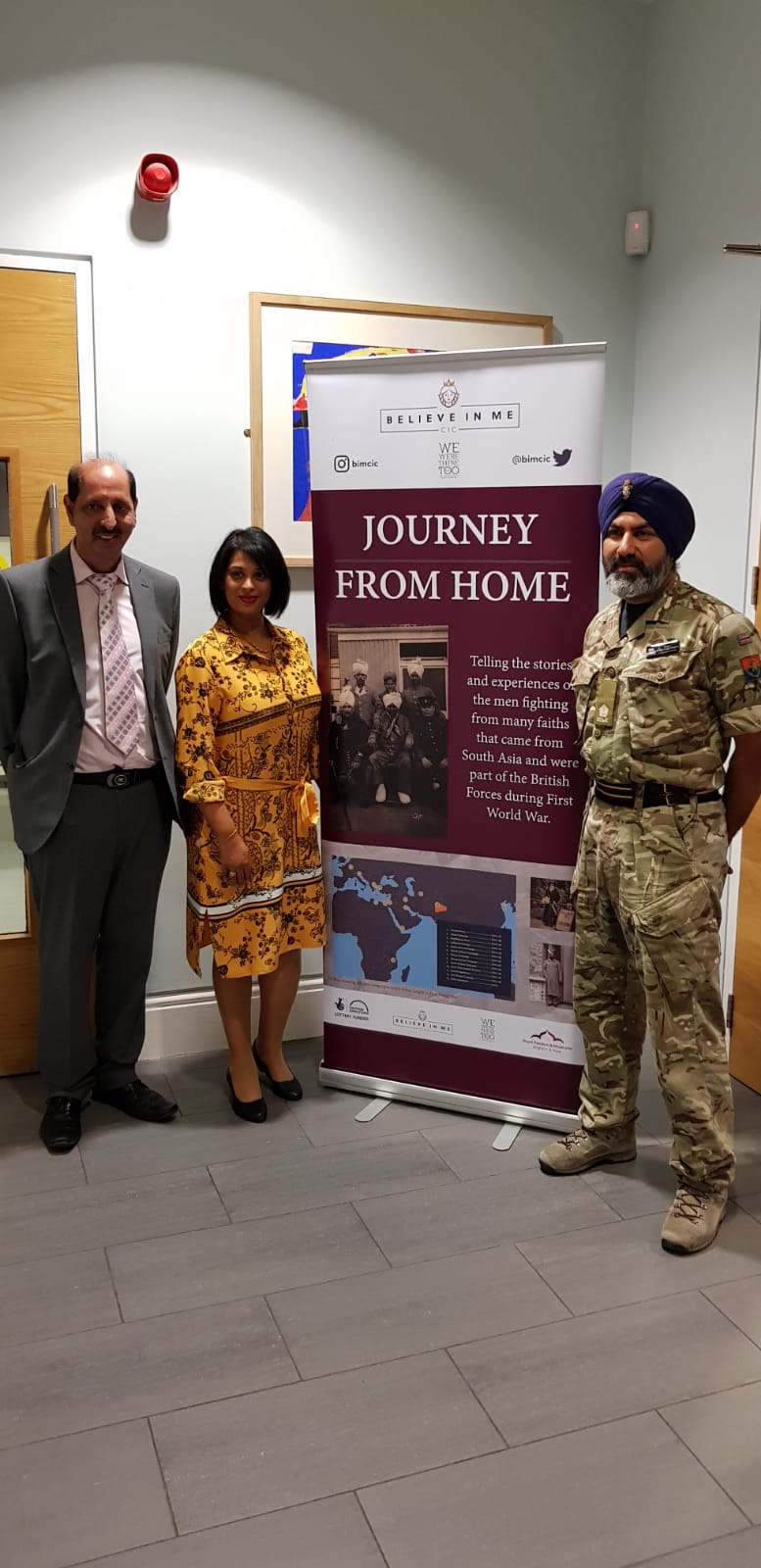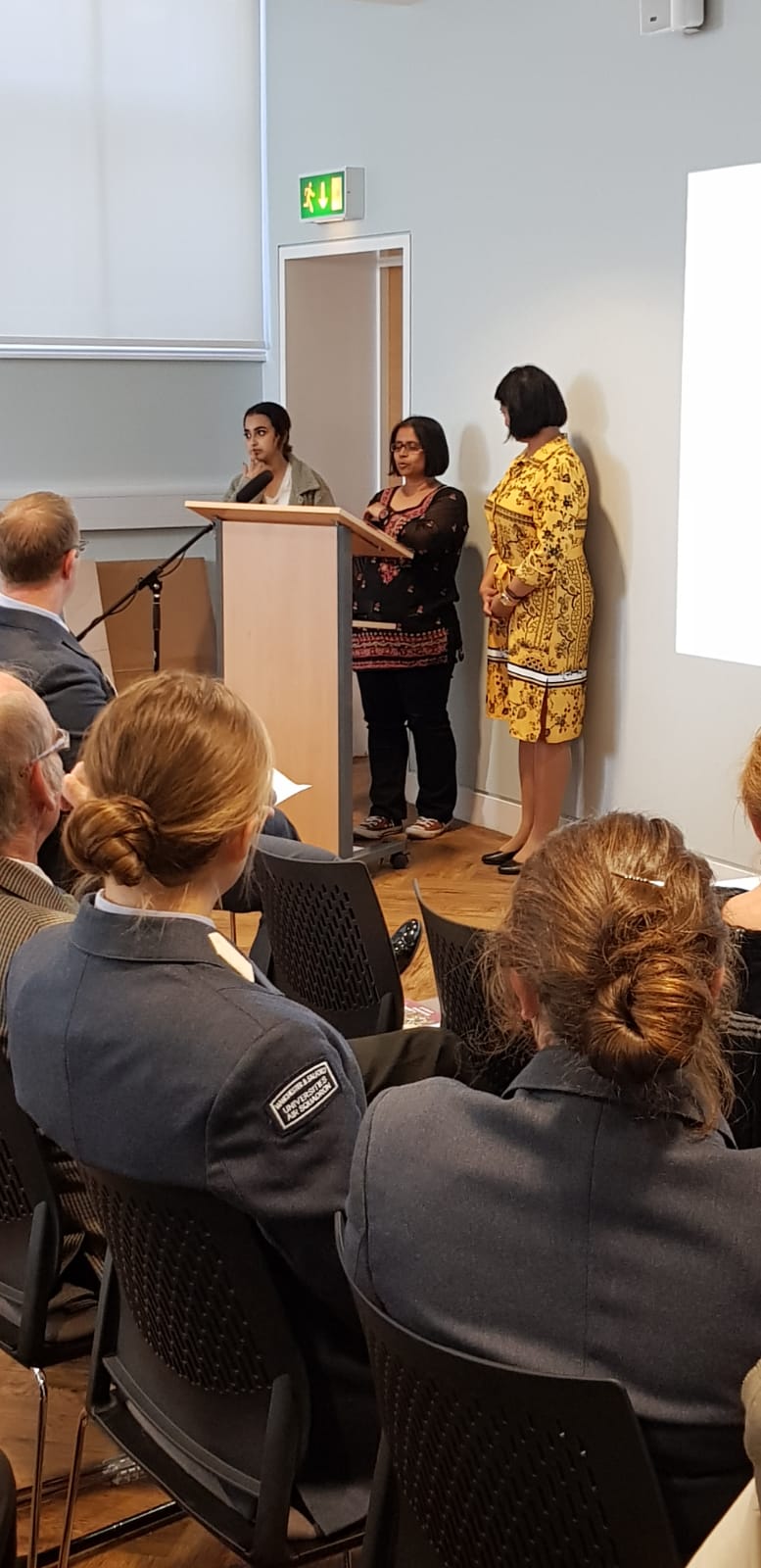Leeds Seminar Event
Our first Journey from Home seminar in collaboration with Leeds Museum was going to break the stereotype that Indian Military history is male dominated. I was excited to introduce our all-female line up of guest speakers, to showcase how women are dominating history with our projects researching South Asian servicemen and women. We held our first seminar in Leeds - I wanted to make history accessible to all as I had many requests from community groups wanting to learn more. Thanks to Heritage Lottery Funding we hosted a free event with myself and Sartaj Gogna (Project Curators of Journey from Home), other speakers were Major Naveed Muhammad MBE, Lucy Moore (Project Curator on Jogendra Nath Sen at Leeds Museum), Paula Kitching (Historian, writer, researcher and Project Manager for Jews in the First World War), Sarina Kaur (Artist) and Manni Kaur-Taylor.
This event was open to all and we had such a range in the audience. Attending were representatives from Leeds Council, Armed Forces, academics and local community members. It was such a fantastic way of getting histories into cities that often want to learn about Indian history but do not have access to London (where all the large organisations and events are based).
This seminar was used to educate the audience of the many misconceptions when thinking of the contribution made by South Asian soldiers - our project is to build communication within communities where is has broken down. We invited Muslim soldier Major Naveed Muhammad MBE to speak about his own career in the Army and his role as former Chairman of Armed Forces Muslim Association (AFMA). Being the chairman allowed him to create change for the newer recruits and explore why there is so much more that we can learn. The way the Army serves Muslim soldiers has changed a lot over the last 100 years yet we often forget how the war was full of Muslim, Sikh and Hindu soldiers fighting side by side. These projects highlight just how important that stories of the South Asian Servicemen in First World War are remembered all throughout the year.
Our Journey from Home project was to introduce the stories and research we had undertaken so far to the audience. Many of the young people that attended were not aware that Pakistan and India had gained their Independence in 1947, when we refer to South Asian (Indian) Soldiers we refer to pre-partition. It is facts such as these that help non-historians understand how diverse the Armed Forces had become. We are sometimes bombarded with certain images of South Asian Soldiers that it easy to forget that there are men and women serving in the Armed Forces today. There were separate taps for Muslim, Sikh and Hindu soldiers to drink from as well as the British catering for the various dietary requirements. To give the audience a better understanding of the stories were we going to include in our up-coming exhibition was of Princess Sophia Duleep Singh. With many recent documentaries of her role as a Suffragette, we researched her role as a nurse and how her visits to wounded South Asian soldiers kept their spirits high. This was the only time that the wounded soldiers would be in company of an Indian Princess.
Lucy Moore, presented her work on Jogendra Nath Sen. Born in 1887 (Chandernagore, India) and is thought to be the first Bengali soldier to die in First World War. He gained a degree at the University of Leeds, BSc Electrical Engineering in 1913, which was rare at the time. Private Sen enlisted in the 15th West Yorkshire Regiment also known as Leeds ‘Pals’ Battalion. He was the only non-white in the Regiment. On the 22nd May 1916 while in action, Sen was hit in the leg by a shrapnel, he was hit again in the neck and died instantly. He is buried at Sucrerie Military Cemetery in Somme, France. Private Sen’s name is placed in Leeds on their University war memorial - he was part of the British Army rather than the Indian Army. The British thought of the Bengali’s as a ‘non-martial’ race, which meant they were initially excluded from the Indian Army.
Paula Kitching, presented her project, Jews in the First World War and how a Jewish Lieutenant joined the Indian Army. When thinking of South Asian contribution in First World War, we don’t often think of the Jewish Officer who wore a turban. Why would we - we are not taught it in history lessons. Lieutenant Frank Alexander de Pass was born in 1887 in Kensington, London. He was the first Jewish recipient of the Victoria Cross and the first Officer of the Indian Army to win the award during the First World War. In March 1909 he was made lieutenant. Lieutenant de Pass was able to speak the Indian language as he was appointed as an orderly officer to Lieutenant-General Sir Percy Lake, Chief of the General Staff in India. In August 1914 his Regiment was stationed at Secunderabad, India. He died in November 1914. Lt de Pass and Indian soldiers discovered that the Germans (the enemy) had built a sap (a small trench) near them. Lt de Pass and Sowers Fateh Khan and Firman Shah, went to destroy the traverse. The men had achieved this and returned back unharmed, despite being under attack by German bombers. The next day, the Germans attacked again, and the bombs were directed at the Poona Horse’s trench. Lieutenant de Pass had volunteered to repair the damaged parapet. As he did this a German sniper had spotted him. Lt de Pass went to shoot but the sniper got there first and shot him in the neck, where he died instantly. He is buried at Bethune Town Military cemetery, France. His Victoria Cross can be found at National Army Museum, Chelsea (NAM 1995-04-2-1).
Sarina Kaur, artist, discussed how she got involved with our project and working with the volunteers creating responses to the research they had undertaken. The art workshop ran for 2 days and it brought many of our young people together so that they can create artwork for our upcoming exhibition. The first day of the workshop was discussing the research trips and encouraging young people to become creative in what they have learnt so far. The main highlight for them was their visit to Brighton Pavilion, the elegance of every room and knowing that it had been used as a hospital for the wounded troops. Under the guidance of Sarina, the volunteers learnt different art techniques and learnt new skills as many of them were not artists. The second day they came together and finished off their art, while thinking of all the stories and information that they had been told about the various experiences these South Asian servicemen must have gone through. Under her direction they learnt new art techniques and she guided them to create pieces that inspired them. This was important to young people on this project who did not know about the stories or the contribution made by South Asian Soldiers during First World War. After the session we discussed why they created the art and what it meant to them, we read poems and letters written by the soldiers.
Manni Kaur Taylor was our community volunteer who joined our project when she learnt about her own personal history - her great grandfather served in the First World War. I had met Manni at an event, where she was joined by her daughter, and wanted to learn more about the contribution of South Asian Servicemen. Manni spoke about her personal experience of wanting to research further about her family history and how she had problems researching her past due to her not being a researcher. Our project had helped her tell her story. She brought along an original letter and a death penny that was given to her by her father. Along with her was her daughter, who spoke about why it was now important to her knowing her history. At 15 years old she now understood how important the Death Penny and the original 100 year old letter is to her.
“When I was little I didn’t understand why this letter was important to my mum. Now I understand, with projects like this it helps knowing about our history. My friends are not really interested as they don’t have a connection”.
A great seminar to connect with the audience and as a feedback card stated:
“I did not know that there were turbaned soldiers in the British Army today, we should be having more events like this”.
Any way that we can educate the wider community is great.


